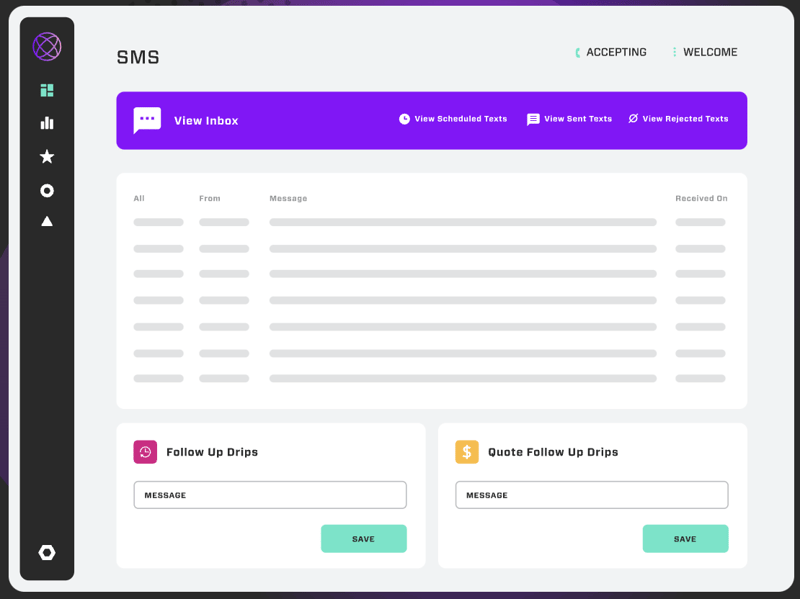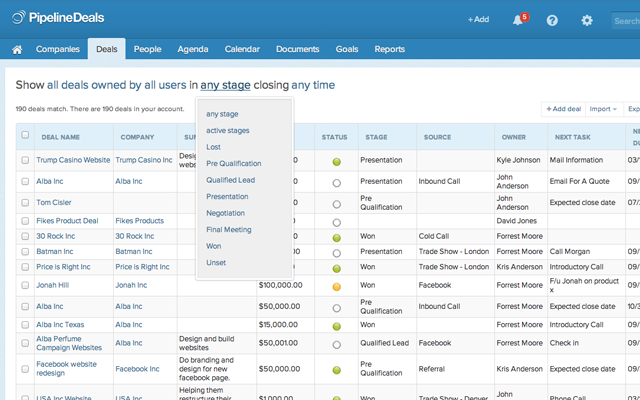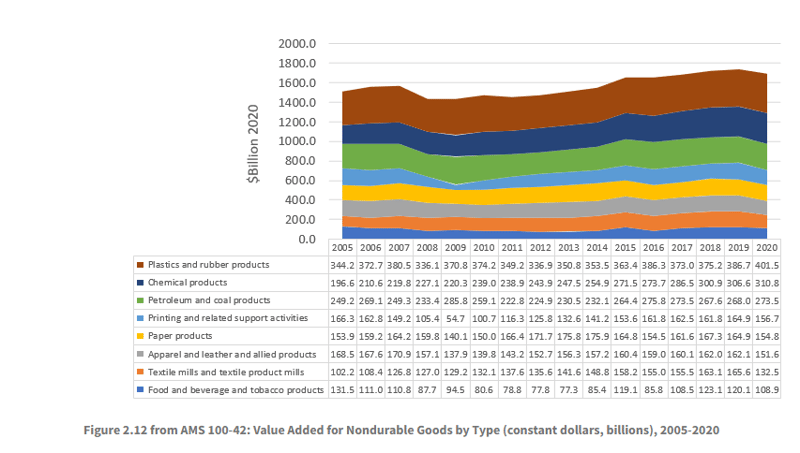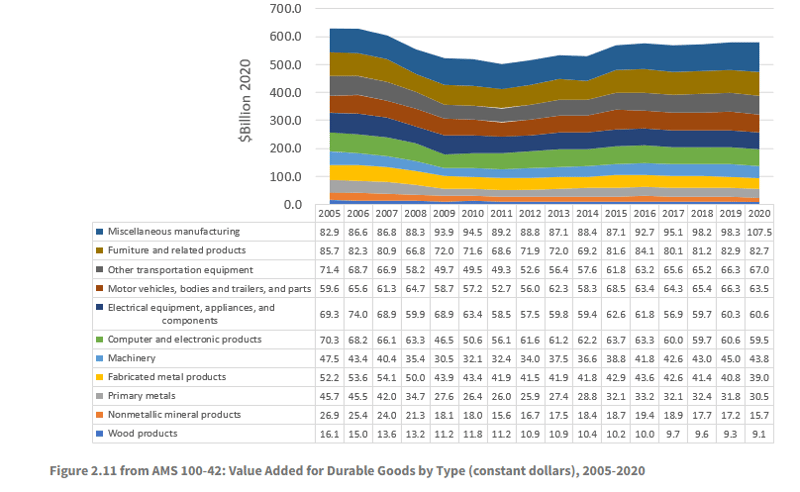
A Guide on Manufacturing CRM [Top Selection Criteria]
 Updated on
Updated on
By Ringy
Table of Contents
Table of Contents
Here's the plain truth—manufacturing is complicated. Between managing suppliers, tracking inventory, and keeping customers happy, it can feel like you need a dozen arms just to stay on top of things.
And if you're not on top of things, you could just end up like this guy…
Drowning!
But what if you had a tool that could streamline operations, improve customer relationships, and boost your bottom line? Enter manufacturing CRM—your new best friend in efficiency.
Unlike generic CRMs, CRM for manufacturing companies is designed with the industry's unique challenges in mind. Whether you're dealing with long sales cycles, custom orders, or complex supply chains, the right manufacturing CRM software can help you manage it all like a pro.
But every manufacturing CRM is unique! In this guide, we'll break down the top CRMs for manufacturing, the selection criteria, among other crucial factors to help you find the perfect fit for your business.
Ready to make your operations smoother and your customers happier? Let's dive in!
Top 5 CRMs for Manufacturing Companies
*Note: All pricing details are accurate as of March 2025.*
|
Manufacturing CRM |
Key Features |
Pricing |
|
$109 per month plus price of add-ons |
|
|
$30/user/month |
|
|
€25($27.19)/user/month |
|
|
$12 per use/month |
|
|
$25 per user/month |
Ringy
A CRM for manufacturing industries that just makes sense…or cents…or, best of all, both.

Ringy offers all the basic capabilities of any CRM - data management and tracking, communication features, and pipeline management tools, too.
Ringy provides upline support for coaching team members in real-time. This means that relationships can be fostered across the board for better-connected selling.
Plus, the advanced AI capabilities create automatic messages to prospective leads specific to that potential customers' details.
Ringy comes in at only $109/month.
Dooly
This CRM offers a lot of bells and whistles. It has advanced integration capabilities and even offers up cue cards during sales calls. It includes integrations with other popular software like Zoom and Slack.

Dooly comes in at $30/user/month for their growth package meant to serve standardized team processes.
While this CRM offers many benefits, it's primarily geared towards sales and sales teams, rather than scalable for manufacturing.
Salesforce
We couldn't leave this CRM off of our list.
Salesforce is perhaps the most recognized CRM across all business industries. This is partly because it was one of the first to emerge.

Because of its popularity, Salesforce has grown to encompass many industries and now offers numerous integrations across other platforms. While the many integrations it offers are one of its biggest perks, it comes with drawbacks too.
Some customers report lags in customer support or communication with the Salesforce team when and if there's a problem.
Plus all those features don't come cheap, as Salesforce's pricing starts at $27.19/user/month for the platform.
Of course, it's still a solid choice for manufacturing CRM software, but perhaps not the best for companies looking to be a bit more cost-avoidant.
Zoho

Zoho boasts the title of the most used CRM. It's a great choice for manufacturers because it has a simple-to-use interface and offers a free version.
The simple to use interface is a great perk for a manufacturing industry CRM because it's easy to use for the whole team. This means that the focus can be on manufacturing products and selling them, rather than getting caught in a web of tech issues.
It's also a cost-effective choice, coming in at $12/per user, per month billed annually.
These are all solid features, but with over 150,000 businesses using this software service, it has some drawbacks.
Customer service is lacking and some users report slow response time.
Simple doesn't always mean better in this case. While it could be cost-effective, it isn't good for businesses that are growing or looking to grow.
Pipeline
This CRM offers a lot of benefits for manufacturers. It includes a feature that will pre-record training sessions. Once the sessions are recorded, they're accessible to everyone in an archive.

Pipeline CRM for manufacturing industries allows for custom analytics and automations for recurring deals too. This is important for manufacturers since many industry customers often purchase items in bulk.

Pipeline is only offered in English though which isn't good for globalized teams.
It's priced at $25 per user, per month billed annually, and includes a free 14-day trial.
How to Choose a Manufacturing CRM

Now that you're completely convinced, let's dive into what you should look for when picking out a manufacturing CRM.
Here are the top 5 selection criteria:
- Price
- User-friendliness
- How quickly can it be implemented
- Communication features
- Data management capabilities
Don't waddle..run!
Or just keep reading.
1. Price
We know how impactful the last two years have been. We know that the pandemic greatly affected revenue and left many manufacturing companies afraid for the future too.
That's why the price is one of the most crucial criteria you need to consider when shopping for manufacturing CRM software.
As a general rule, most CRMs offer tiered packages based on the needs of your business and the size of your team. Some can cost as much as $150 per user, per month.
Businesses come with different-sized teams and different needs. What's affordable for one team may not be for another. Check out our pricing to see what you could expect to pay.
2. User-Friendliness
CRMs come with a lot of bells and whistles, which is great. But some of them can look like they require a Ph.D. to operate.
No one wants software that is so complicated to use they end up wasting time and money trying to integrate it into their existing tech stack only to discover that their team struggles to use it effectively. This is especially important to consider when switching from legacy software.
Features to look for when considering user-friendliness include:
- Ease of integration
- How many platforms that are already in use can the CRM support?
- Customization features
- Can the CRM support the unique needs of your business, including the size of the team and potential growth?
- Scalability
- Does the CRM have the ability to scale up or down as your business expands?
- Mobile capabilities
- Does the CRM include a mobile app?
Transitioning to CRM for manufacturing software should be smooth, and include an interface that is easy to use, and is easily accessible to everyone.
3. How Quickly Can It Be Implemented Across the Team?

CRM implementation depends on factors such as the size of the team and the size of the business. The implementation also depends on what software systems are currently in use. At the longest, it can take up to 1 full year to completely implement a CRM across your team.
What good is an affordable, user-friendly CRM if it takes months or longer to integrate across existing team systems?
Consider how a CRM's integration features match with the software and systems that are already in use. Choose one that includes an onboarding team that will help navigate the whole process. This can cut down on implementation time.
4. Communication Features
There's no point getting a CRM if it doesn't give you the ability to communicate effectively across with your team and with leads, too.
That's why you should consider a CRM with cloud-based communication features. This is a key component of this game-changing software.

The ability to make calls, create drip campaigns, automate emails and SMS, plus stay in contact with your team allows for seamless communication during every stage of your sales pipeline.
Why does this matter?
- Better communication across the board means better CX. This is good for sales, good for customers, and good for maintaining a reputable brand.
- Streamlined communication means every team member can stay on the same page from lead generation to nailing negotiations.
- Without communication breakdowns, manufacturing industry teams can stay on top of market trends, make accurate projections, and capitalize on the possibilities of operating on a global scale.
5. Data Management

Of course, all of this is useless if your manufacturing CRM software can't track, store, and provide critical analytics specific to your business.
Manufacturing CRM software can automate tasks, eliminating the need for redundant admin work. It can sync with calendar apps, sync notes, organize, track, and store leads, and provide information that identifies trends.
A system that manages all points of data means you can replicate successful sales cadences again and again.
Plus, having access to these analytics is crucial for training purposes.
This information provides a blueprint that can be used to train new employees and keep existing employees up to speed.
Why does this matter?
Because of the widening skill gap problem plaguing the manufacturing industry.
And, look, we can't solve the widening skills gap in one day, but did you know that 70% of manufacturers are focusing on upskilling their workforce to mitigate the skills gap?
Simply put, an excellent CRM for manufacturing can provide irreplaceable data for the existing team and reduce the time it takes to onboard new employees too. Ultimately working towards decreasing the skills gap.
Implementation Best Practices
So, you've picked the perfect CRM for manufacturing—congrats! But before you pop the champagne, there's one more critical step: implementation.
A well-implemented manufacturing CRM software can transform your business, but a poorly executed rollout? That's a fast track to frustration, resistance, and wasted investment.
To make sure your CRM doesn't end up as an expensive digital paperweight, follow these best practices:
Steps to Successfully Implement a CRM System
You need clear steps to implement a CRM system successfully. So, here they are:
- Define Clear Goals: What do you want your CRM for the manufacturing industry to achieve? Streamline order management? Improve customer retention? Reduce lead conversion time? Define your goals upfront so you can measure success.
- Customize for Your Needs: No two manufacturing CRM systems are identical. Tailor the CRM to fit your workflows, whether it's tracking inventory, managing complex sales cycles, or automating customer follow-ups.
- Integrate with Existing Systems: A CRM for manufacturing companies should seamlessly connect with ERP software, production management tools, and accounting systems to avoid data silos.
- Start Small, Scale Up: Instead of rolling out everything at once, start with a pilot team or department. Gather feedback, make adjustments, and then expand across the company.
Common Pitfalls to Avoid
Successful manufacturing CRM implementation requires more than following the right steps. You also need to avoid the following mistakes:
- Skipping User Training: Even the best manufacturing CRM is useless if your team doesn't know how to use it. Invest in hands-on training and create easy-to-follow guides.
- Overcomplicating the System: More features don't always mean better results. A cluttered, complex CRM will overwhelm your team. Focus on essential functionalities first.
- Ignoring User Feedback: Your employees are the ones using the CRM daily. Listen to their feedback and adjust settings, workflows, or automation to improve usability.
- Neglecting Data Hygiene: Migrating inaccurate or duplicate data from old systems into your new CRM will cause headaches. Clean up your data before implementation.
How to Train Teams and Encourage Adoption
Here's how to train your team to encourage the adoption of a CRM for manufacturing:
- Make Training Engaging: No one wants to sit through a boring training session. Use interactive workshops, short video tutorials, and real-life scenarios to keep things interesting.
- Highlight the Benefits: Employees are more likely to embrace change if they understand what's in it for them. Show how a CRM for manufacturing can make their job easier—whether it's fewer manual tasks, better customer insights, or faster sales processes.
- Appoint CRM Champions: Select key employees to become CRM experts. These "super users" can support colleagues, troubleshoot issues, and drive enthusiasm.
- Track Adoption and Celebrate Wins: Monitor usage rates, and when employees use the CRM effectively, recognize their efforts! Small incentives or public shout-outs can go a long way.
By following these best practices, you'll ensure a smooth and successful CRM implementation, setting your business up for long-term success.
What Distinguishes a CRM for Manufacturing From Other CRMs?

On the outside, regular CRMs and CRMs for manufacturing appear the same. In many ways, they are similar and there's a lot of overlap in functionality.
Stick with us.
A better way to look at this is by considering that some CRMs are better suited for the manufacturing industry than others.
Here's how they differ:
|
Regular CRM |
CRM for Manufacturing Industries |
|
Store and track lead data |
Automate communication between multiple contacts for streamlined selling |
|
Tracks revenue trends |
Helps industry management make accurate production forecasts |
|
Create sales cadences |
Provides industry analytics necessary to make campaigns and marketing specifically to geographic location |
As you can see, CRM for manufacturing provides you with the ability to:
- Capture lead data
- Track and store customer details
- Identify trends and patterns
- Increase productivity
- Seamlessly collaborate with other team members or applications
- Easily navigate the virtual space of meetings, etc.
- Manage your sales pipeline
- Send and receive calls, SMS, and emails
- Automate communication and sales
In short, CRMs provide literally everything necessary to gather new leads, nurture existing leads, fill the sales funnel, collaborate with other team members, manage and view the pipeline, communicate, and orchestrate marketing strategies.
We know that CRMs are all the rage and because of that, you've heard of them already. Maybe you're already using one. Perhaps you think you already know everything there is about CRMs.
We get it.
But consider this…
Manufacturing industries saw huge increases in demand beginning in 2020. Here's proof.


Look at those spikes!
If that isn't enough to convince you…
CRMs are the fastest growing and biggest software category, with market projections expecting sales to reach $163.16 billion by 2030 in the US alone.
That said, manufacturing CRM software accommodates the unique needs of the industry like the volume of production, for example. They offer several specific benefits including:
- Streamline communication across multiple contacts
- Create sales cadences specific to the location
- Identify trends with analytics that help facilitate production planning
- Build a better B2B and B2C CX
Why does this matter?
Most manufacturing industry sales involve multiple contacts. The ability to streamline communication means the whole team stays on the same page at all stages of the deal. From production to repeating customers, streamlined communication is a key benefit for manufacturing industries.
Customizable sales cadences matter for globalized marketing and selling because what works in one location might not work in another. The ability to create sales cadences and marketing campaigns specific to geographic location can increase ROI and overhead revenue.
The right manufacturing CRM identifies, tracks and provides analytics that mean you can facilitate production planning that works best. This helps to avoid bottlenecks in production plus cuts down on unnecessary spending.
Improving customer relationships is vital to any business. It's no secret that customers have more choices than ever these days. With just a few clicks, any customer anywhere in the world has access to tons of information and other manufacturing companies.
The right CRM for manufacturing companies can help you stand out among the sea of other global competitors by streamlining customer communication. When lead data is automatically captured, you can coordinate automated communication like SMS to ensure a successful sales touch with every customer.
You need that.
Plus, CX is a driving factor behind where customers are willing to spend their money. Consider these statistics:
- Nearly 50% of customers have canceled orders due to bad service
- Increasing customer retention by only 5% can boost profits up to 25-95%
In short, the inability to get and stay organized from production, to sales, to pipeline management is costing you sales and critical relationships with new and repeating customers.
It's clear to see that implementing a manufacturing CRM software can skyrocket productivity, increase ROI, cut down on wasted time, and create a better CX for an increased retention rate.
The Business Case for a Manufacturing CRM
A manufacturing CRM software is a powerful tool that tackles common pain points, streamlines operations, and boosts profitability. Here's why it's a game-changer.
Common Pain Points in the Manufacturing Industry
Manufacturers deal with unique challenges that traditional CRMs aren't built to handle. Without a CRM for manufacturing industry, businesses often struggle with:
- Lead Tracking Chaos: Without a centralized system, sales reps lose track of leads, causing missed opportunities and lost revenue.
- Inefficient Sales Processes: Long sales cycles, custom quotes, and scattered communications make closing deals unnecessarily complicated.
- Disorganized Customer Data: Customer information is buried in spreadsheets, emails, and outdated systems, making it hard to provide personalized service.
- Poor Demand Forecasting: Without historical sales data and customer insights, predicting demand becomes a guessing game.
- Weak Customer Relationships: Lack of visibility into past interactions leads to impersonal service and lost repeat business.
How a Manufacturing CRM Streamlines Operations
A CRM for manufacturing industry is designed to tackle these challenges head-on. Here's how:
- Centralized Lead & Customer Data: All customer interactions, quotes, and purchase history are stored in one place, making it easy to track and follow up.
- Automated Sales Processes: From follow-ups to order tracking, automation eliminates manual tasks and speeds up deal closures.
- Seamless Integration with ERP & Supply Chain Tools: A CRM for manufacturing connects with existing systems, providing real-time insights into production, inventory, and sales.
- Better Demand Forecasting: CRM analytics help manufacturers predict demand based on historical trends and customer behavior.
- Improved Customer Engagement: With a 360-degree view of customers, sales and service teams can provide personalized support and strengthen relationships.
Real-World Impact: Cost Savings, Revenue Growth & Smarter Decisions
Manufacturers who invest in manufacturing CRM software see tangible business improvements, including:
- Cost Savings: Automating workflows reduces administrative costs and minimizes errors that lead to wasted resources.
- Revenue Growth: Faster response times, improved lead conversion, and repeat business all contribute to higher sales.
- Data-Driven Decisions: With real-time analytics, manufacturers can make strategic choices about pricing, production, and customer targeting.
A CRM for manufacturing companies is a competitive advantage. When implemented correctly, it streamlines operations, boosts customer loyalty, and drives profitability.
Conclusion

Let's recap.
The reasons manufacturing industries need CRMs are, well, really endless but importantly because they
- Improve CX
- Provide visibility necessary to navigate future supply chain issues
- Facilitate efficient team management from anywhere
- Help decrease the skills gap on your team
The top selection criteria for choosing a manufacturing industry CRM are:
- Price
- User-friendliness
- How quickly a new system can be implemented across the team
- Communication features
- Data management
So, why are you still waddling?
It's true. You can implement a CRM for your manufacturing business and stop getting jammed in production bottlenecks (and sales and communication and..you get it).
Build a better CX, make more accurate projections, increase productivity, work on closing the skills gap, and effectively manage your team from wherever they are by adding an automated personal assistant that's accessible to everyone with manufacturing CRM software.
Start your free 7-day trial today and transform this ugly duckling into the graceful, swimming, and most importantly, profitable swan we know it can be.

Skyrocket your sales with the CRM that does it all.
Calling? Check. SMS? Check. Automation and AI? Check. Effortlessly keep in touch with your customers and boost your revenue without limits.

Take your sales to new heights with Ringy.
Sales in a slump? Ringy gives you the tools and flexibility you need to capture leads, engage with them, and turn them into customers.
Subscribe to Our Blog
Enter your email to get the latest updates sent straight to your inbox!
Categories
Related Articles




































































































